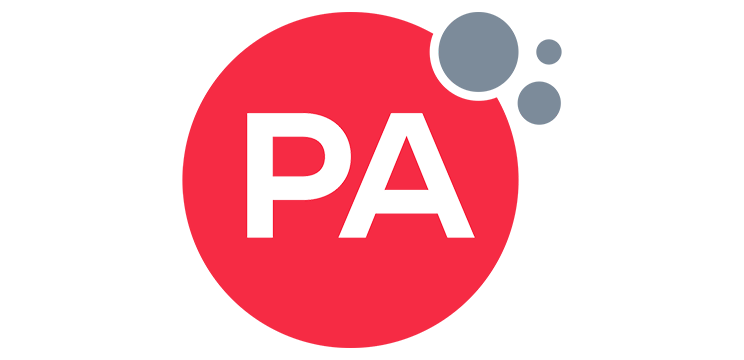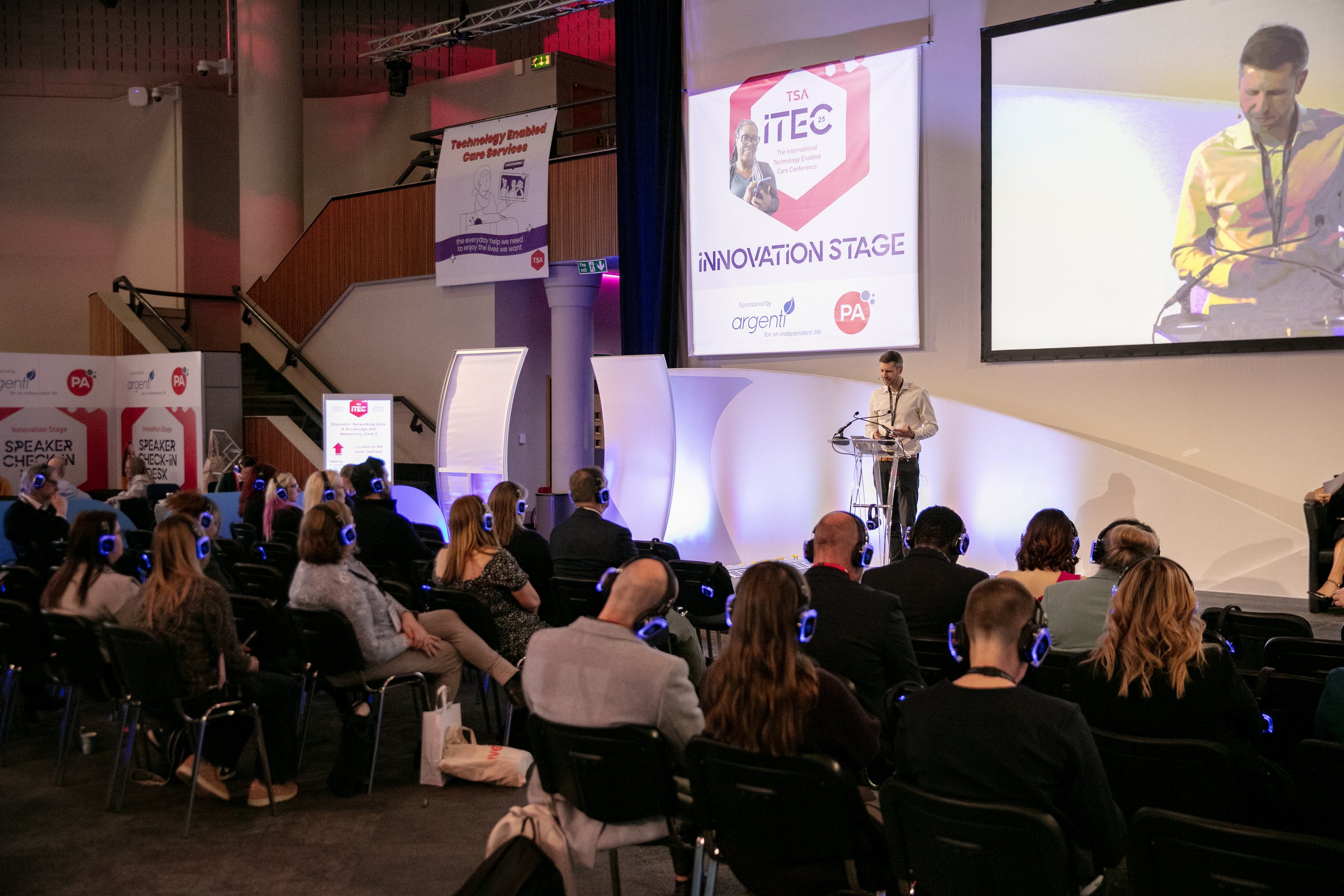
Turning insight into action - reflections on the 2025 ITEC conference

03 April 2025
Article by Oliver Peppiatt (PA Consulting)
The 2025 TSA International Technology Enabled Care (ITEC) conference convened people with lived experience, industry leaders and innovators to share inspiring insight. Many of these contributors graced the PA Consulting sponsored Innovation stage, and it was clear that innovation isn’t the challenge. Implementing it is. The focus for our sector is turning insight into action.
Given the privilege of providing closing reflections, I listened intently throughout the two days of the conference and was struck by three key balances to strike when turning insight into action to shape a better future for people: the balance between immediate priorities and longer term aspirations, the balance between using data effectively or being burdened by it and the balance between learning from others and blazing the trail.

Balancing immediate priorities and longer-term aspirations.
We’ve all had best laid plans derailed by emerging capacity or financial challenges. This is often outside of our control, but what can we do about it? The first thing is to accept that it’s going to happen. During Baroness Tanni Grey-Thompson’s conference introduction she challenged the sector to always find new ways to be ambitious and creative. This made me reflect that in sport, coaches talk about being comfortable in chaos… I think in TEC we need to be inspired by the unexpected, because we can’t always prevent it. But, if we see these unexpected events as an opportunity to be inspired, we are more likely to think about how the solution to the immediate problem can be part of our longer-term plan, rather than the thing that deprioritises or replaces it. ADASS president Melanie Williams talked about the importance of building trust with people and growing their confidence in technology. This is essential to delivering in the longer term, as is building the investment case to deliver our vision of the future. One area where it’s clear there is both a challenge to tackle and scope for TEC to be a key part of the solution is the support of working age adults, including those in the transition to adulthood, with learning disabilities. It was inspiring to see this front and centre of discussions.
Data and the importance of finding the balance between using it to create insight or being burdened by it.
I’m preaching to the choir when I say that the role data plays in TEC services and supporting people is essential and has come on leaps and bounds in recent years. But there is still much more we can do. However, the value doesn’t come from the existence of the data itself but from the insight it generates to enable smarter decisions and faster action. When imagining our futures at ITEC, there was an increasing focus on integration and how this creates a rich but potentially complex picture. It’s vital that as we go on this journey we consciously consider what we’re trying to discover from data rather than valuing its mere presence, and build a workforce that is increasingly data savvy so that they can interpret the insight it generates and take appropriate action to intervene early. A good starting point is to reflect on whether our services are truly using the data we already hold in the most effective ways to shape care and support. At ITEC, PA, in partnership with Taking Care, launched the Hälo proposition, which seeks to help services do exactly that.
Striking the balance between learning from others and setting the trends.
Innovation isn’t a zero-sum game. You don’t have to be different to be innovative. But equally, the answer isn’t just to do the same as someone else because it worked for them. Bringing ingenuity to life is often about learning from the experience of others but tailoring it to the needs of the people you support. We are all supporting people with different experiences in different contexts and need to co-produce with them. We should be informed by what has worked for others but not constrained by it. Conference speakers stressed how important it is to start with the problem you are trying to solve and to harness the vibrancy of people with lived experience and make them part of the decision-making process. This reiterates that innovation doesn’t always mean new technology. It can be equally as innovative to transform the way your workforce delivers care and support for people, in fact, the TSA and PA senior leaders’ survey findings shared at the conference found that 86% of Directors of Adult Social Care see raising awareness of TEC within the workforce as a key priority. Stephen Kinnock MP challenged and empowered the conference attendees and TEC sector to innovate and think differently to deliver the desired outcomes defined by government. Key to making the most of this autonomy is being intentional with decisions and a clearly defined strategy and direction of travel that balances the lessons learned by others and thinking creatively. Every exhibitor I spoke to at ITEC 2025 is open to discussions with commissioners and service managers. Now we must challenge them, ourselves, and each other to think about how our already excellent services and solutions could do even more to transform lives. We must take advantage of the appetite to collaborate.
So, what does it look like when those three balances come together to turn insight into action? Services will have a clearly defined longer term plan co-produced with people to tackle the challenges they face. It will acknowledge and accept the unpredictable competing priorities that emerge along the way but remain steadfast in the commitment to deliver. It will be built on an empirically proven investment case that helps foster greater workforce understanding and public consciousness of the benefits of TEC. And it will view data as a tool to generate insight and trigger action. Lastly, it will see the continuation of the collaboration so evident at the conference – share ideas, learn lessons and turn insight into action together.






